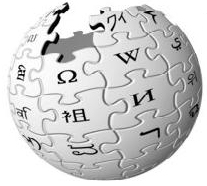Social freeloaders: Is there a collective wisdom and can the Web obtain it?


Wikipedia, itself, warns those consulting Wikipedia as an “encyclopedia” about the dangers of misinformation and vandalism at the site:
Because Wikipedia is an ongoing work to which in principle anybody can contribute, it differs from a paper-based reference source in some very important ways. In particular, older articles tend to be more comprehensive and balanced, while newer articles may still contain significant misinformation, unencyclopedic content, or vandalism. Users need to be aware of this in order to obtain valid information and avoid misinformation which has been recently added and not yet removed.
The New York Times (NYT) “Growing Wikipedia Revises Its 'Anyone Can Edit' Policy” describes Jimmy Wales’, Wikipedia's founder, mission as offering “free knowledge to everybody on the planet” and quotes Wales:
Protection is a tool for quality control, but it hardly defines Wikipedia…What does define Wikipedia is the volunteer community and the open participation.
While the NYT parses the meaning of “open participation,” it is also important to quantify the “volunteer community.” Wikipedia says it is “written collaboratively by people from all around the world.” Wales acknowledges, however:
A lot of people think of Wikipedia as being 10 million people, each adding one sentence…But really the vast majority of work is done by this small core community.
According to the NYT:
The bulk of the writing and editing on Wikipedia is done by a geographically diffuse group of 1,000 or so regulars, many of whom are administrators on the site. The administrators are all volunteers, most of them in their 20's. They are in constant communication — in real-time online chats, on "talk" pages connected to each entry and via Internet mailing lists. The volunteers share the job of watching for vandalism, or what Mr. Wales called "drive-by nonsense." Customized software — written by volunteers — also monitors changes to articles….It has a clear power structure that gives volunteer administrators the authority to exercise editorial control, delete unsuitable articles and protect those that are vulnerable to vandalism.
Wikipedia’s “small core community” that does the vast majority of the work reflects the extremely low ratio of contributing users to non-contributing users throughout the new social Web that relies on user contributions for its content.
From Wikipedia to de.licio.us, and from YouTube to Riya, both not-for-profit endeavors and purely commercial enterprises are staking their entire existence on user-generated content that is unreliable, inconsistent and difficult to come by.
The average YouTube user is watching the content, not generating it, “while more than 35 million videos are viewed daily, only 35,000 are uploaded” and at Riya photo search, “searchers outnumber the uploaders…20 to 1.”
Perhaps the social Web will come to be known for its freeloaders, rather than its uploaders.
For more on the Social Web see "Buzzwords 2.0" and “Tags, diggs and comments: coaxing a 'delicious' social Web" and “Social media–the new growth hormone"
UPDATE: CNET reports that Jimmy Wales, has asked that college students refrain from citing Wikipedia as a source of academic research: Speaking at the Annenberg School for Communication, Wales said that while Wikipedia is useful for many things, he would like to make it known that he does not recommend it to college students for serious research and that Wikipedia has considered putting out a fact sheet on the site, it would explain the nature of Wikipedia and why it's not always a definitive source. Teachers could hand it out, he said.